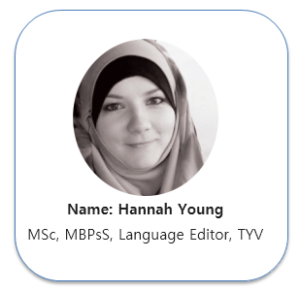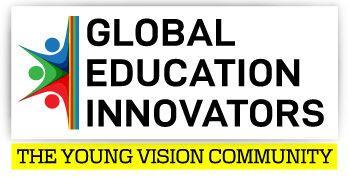Confidence: Fake it ‘till you make it

 At TYV, we spend a lot of time talking about career success. One of the tools you need in your academic and professional ‘toolkit’ is networking. If you learn the skills, and if you put those skills into practice, networking can be a powerful tool to get you to where you want to be, academically and professionally. But there’s something you need in order to be a successful networker – confidence.
At TYV, we spend a lot of time talking about career success. One of the tools you need in your academic and professional ‘toolkit’ is networking. If you learn the skills, and if you put those skills into practice, networking can be a powerful tool to get you to where you want to be, academically and professionally. But there’s something you need in order to be a successful networker – confidence.
Have you ever observed somebody who seems to exude confidence and grace? Envied somebody who seems to be able to walk into a room and pick up conversation with anyone and everyone? Have you watched somebody give a presentation without a single sign of nerves? Yes, we all know that someone – that someone who epitomises confidence.
For me, the idea of walking into a room full of people I’ve never met before, and having to ‘sell’ myself through networking, is my very worst nightmare. But, I’ve had to do it for a previous job. What you soon learn is that, even though there are a rare few people who are genuinely confident and sure of themselves, most of us are just very good at giving the right signals. So, if you’re lacking the confidence to put your newly learnt networking skills to the test, here are some tips that will help you ‘fake it ‘till you make it’:
Get used to believing it
This is really important, because eventually, you’re going to have to believe in yourself (it’s ‘fake it until you make it’, not ‘fake it because you’re never going to make it’!). Write down your strengths (be honest! There’s no room for humility here!) and put them into a jar. Each time you’re faced with a situation you don’t quite feel confident enough for, dip into the jar and pull out a strength. Believe it!
Forget the words ‘just’ and ‘sorry’
From time to time, when telling people what I do for a living, I’ve found myself saying, “I’m just a ….”. ‘Just’ can be such a negative word. “I’m just studying XYZ”, “I just do such and such in my spare time”, “I’m just the…”. Just immediately diminishes your worth. You’re not ‘just’ anything! Everything you do has value. So stop introducing yourself as ‘just’!
‘Sorry’ has the same impact. Why say, “I’m sorry, I’m not sure about that. I’ll get back to you,” when this is perfectly reasonable without the apology: “I’m not sure about that! I’ll get back to you!” Why, “I’m sorry, can I ask a question?” when, “I’d like to ask a question,” will do? Sorry gives the impression that you have to apologise for your presence and every move. If you want to appear confident and assertive, scrap ‘sorry’!
Divert the attention
When we’re given the impression that someone is genuinely interested in us, we all relish the chance to talk about ourselves. So if you’re in a situation where you’re feeling like there’s too much pressure on you, simply divert the attention. Prepare yourself with a toolkit of interesting questions – probing, but not too personal. Pay attention and listen actively. I guarantee that the person you’re talking to will leave thinking, “Wow, what an interesting person,” just because they got chance to talk about themselves!
Find your happy
Before you go into a nerve-wracking situation like networking, take a moment to do what makes you happy. It might be listening to your favourite song on the way there, going for a walk or run, talking to a best friend who always lifts you up, or putting on the clothes or accessories you feel amazing in.
Slow down
When we’re feeling nervous, it can be easy to speak far too quickly and stumble over our words. When someone asks us a question, we tend to think that answering it immediately makes us sound like we know what we’re talking about. Wrong! It’s being able to avoid the ‘ummmm’ and ‘errrr’ moments that makes the difference. Give yourself a moment to consider your answer before you speak. It will feel like minutes to you, but to your audience your responses will appear calm and considered.
So, if you’re thinking of giving those networking skills a try, don’t let a lack of confidence stop you! Let us know how you get on!
Written By:
Hannah Young – MSc, MBPsS, Language Editor, TYV
